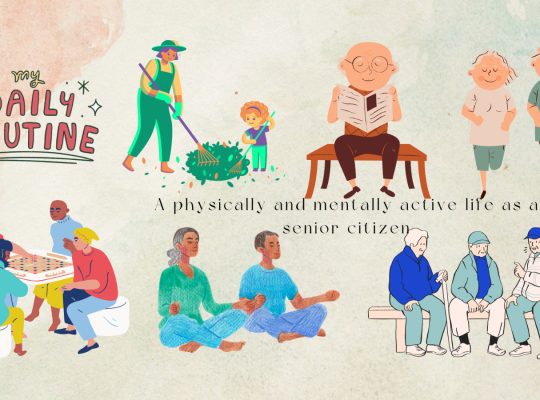‘Parenting is a significant life transition, which increases the vulnerability to psychological distress, often leading to the onset or relapse of psychiatric disorders, mainly depression, for both parents.’
This line in the article titled ‘Paternal Depression: “The silent pandemic”’ (https://journals.lww.com/inpj/fulltext/2022/31020/paternal_depression___the_silent_pandemic_.27.aspx) caught my eye as I was looking for articles on depression in men when they become fathers.
According to the article, ‘depressed fathers are less likely to indulge in pleasant parent-child interaction, e.g., reading, teaching, playing, etc., and are more likely to abuse or neglect their children. Consequently, the children of depressed fathers are more likely to have emotional, cognitive, and behavioural problems. Hence, it is imperative to recognize paternal depression at the earliest for appropriate preventive and remedial measures.’
Termed paternal perinatal depression (PPND), this form of depression in men is apparently not yet considered an official psychiatric disorder.
One needs to keep in mind that during the process of becoming parents, hormonal and emotional changes are occurring in both parents. Men express and cope with their challenges in manners that are often different from women.
While prenatal maternal depression could be the most significant predictor for PPND, other associated risk factors include:
- Poor interpersonal relations with spouse / marital conflicts
- Inadequate social support
- History of severe depression in the past
- Lower education levels
- Father being unemployed
- Having other children
Our society too has been changing in many ways these past few decades, especially in terms of ideology, technology, social structures and economics. Important to also note is the changing role of women in society These and other factors have forced many men to take on responsibilities of a parent that they probably had not seen elder male members in their families take up and are as such not prepared. Whatever the reason(s), the inescapable truth is that the number of men going through PPND has been increasing over the years.
The most frequent behavioural abnormalities observed in the father with PPND are:
- rage attacks and aggressive behaviours toward the infant and the partner – this could be often coupled with an inability to develop a bond with the infant
- avoidance and loss of interest in family life, with increased engagement in work and leisure activities
- fear about the future
- becoming envious about the bond between the mother and child and often feeling being left out or not cared for
- extramarital affairs
- compulsive exercise or sexual activities
- excessive use of videogames and internet (e.g., compulsive chatting, pornography, and sex site usage, internet addiction disorder) or gambling.
Further, according to the article, ‘Depressive symptoms are often comorbid with anxiety and obsessive disorders, and a range of somatic symptoms, along with alcohol and drug abuse, which can mask the main symptoms of paternal depression… Sexual problems and dysfunctions can also arise in the couples due to relational, psychological (depressed mood, and desire or excitement disorders), and physiological (genital pain and dyspareunia) factors.’
PPND can affect the child too due to reduced / negative parental warmth and lack of father-child engagement and interactions. This could result in ‘significant expressive language delay in children’ and such children scoring high on scores of hyperactivity, oppositional defiant/conduct disorder and peer group problems.
Like with most mental health challenges, PPND too can be addressed. Some of the ways to do so are:
- Creating awareness among couples and in society
- Active screening that is aimed at timely and effective management of PPND
- Self-help / support groups
- Mult-speciality approach by considering PPND within a systemic family perspective and keeping in that ‘during the entire perinatal period, the mental state of both the parents influences each other.’
- Prevention and treatment
Help can be found at Tele MANAS’ toll free number 14416.
Please Note: This post is largely an abridged version of the above-mentioned article; many important points have been directly quoted in order to ensure minimal loss of information during transmission. All credit goes to the authors of the article. June being men’s mental health month, I wanted to touch upon a topic that is not talked about much, if at all, in India.
#ProjectMaanasa #Maanasa #MentalHealthForMen #depression #PPND #PaternalDepression





